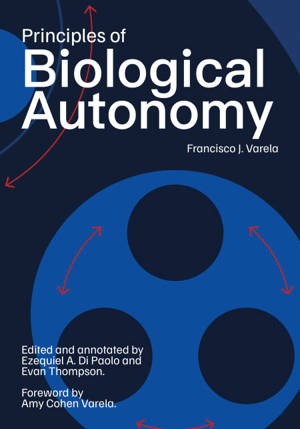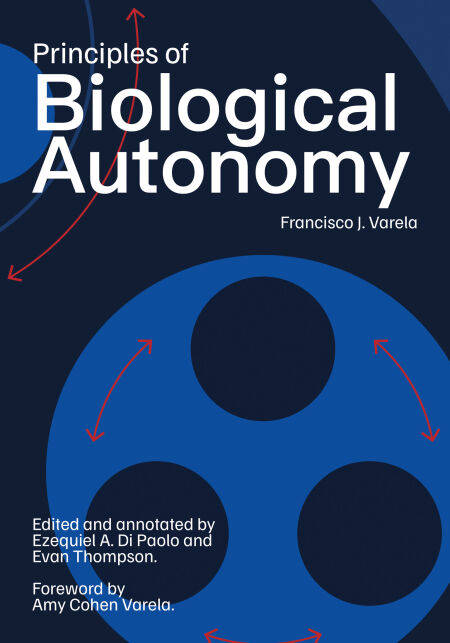
Bedankt voor het vertrouwen het afgelopen jaar! Om jou te bedanken bieden we GRATIS verzending (in België) aan op alles gedurende de hele maand januari.
- Afhalen na 1 uur in een winkel met voorraad
- In januari gratis thuislevering in België
- Ruim aanbod met 7 miljoen producten
Bedankt voor het vertrouwen het afgelopen jaar! Om jou te bedanken bieden we GRATIS verzending (in België) aan op alles gedurende de hele maand januari.
- Afhalen na 1 uur in een winkel met voorraad
- In januari gratis thuislevering in België
- Ruim aanbod met 7 miljoen producten
Zoeken
Principles of Biological Autonomy, a new annotated edition E-BOOK
Francisco J. Varela
E-book | Engels
€ 73,92
+ 73 punten
Uitvoering
Omschrijving
A new, updated edition of the 1979 classic from one of the foremost authors in cognitive science and theoretical biology, with the original text as well as more than 200 citations to current scientific developments.
Francisco Varela’s Principles of Biological Autonomy was a groundbreaking text when it was first published in 1979, putting forth a novel theory of how living systems produce and maintain themselves. This new edition, edited and annotated by cognitive scientists Ezequiel Di Paolo and Evan Thompson—revised and complemented with introductory essays for each part of the book—contains a wealth of ideas relevant to current projects in theoretical biology, cognitive science, systems theory, philosophy of mind, and philosophy of biology. Over 220 margin annotations supplement the reading of the text, linking to subsequent research and broader contemporary debates.
This foundational book introduces the key concept of autonomy derived as an elaboration of the idea of autopoiesis (the self-production and self-distinction) of living organisms. Varela covers topics in systems theory, neuroscience, theories of perception, and immune networks and offers a participatory epistemology that goes on to be further developed in later enactive literature. These ideas are compelling not only for historical reasons but also because they still illuminate current efforts in developing the enactive approach toward wider and more challenging goals (including language, human cognition, ethics, and environmentalism).
Francisco Varela’s Principles of Biological Autonomy was a groundbreaking text when it was first published in 1979, putting forth a novel theory of how living systems produce and maintain themselves. This new edition, edited and annotated by cognitive scientists Ezequiel Di Paolo and Evan Thompson—revised and complemented with introductory essays for each part of the book—contains a wealth of ideas relevant to current projects in theoretical biology, cognitive science, systems theory, philosophy of mind, and philosophy of biology. Over 220 margin annotations supplement the reading of the text, linking to subsequent research and broader contemporary debates.
This foundational book introduces the key concept of autonomy derived as an elaboration of the idea of autopoiesis (the self-production and self-distinction) of living organisms. Varela covers topics in systems theory, neuroscience, theories of perception, and immune networks and offers a participatory epistemology that goes on to be further developed in later enactive literature. These ideas are compelling not only for historical reasons but also because they still illuminate current efforts in developing the enactive approach toward wider and more challenging goals (including language, human cognition, ethics, and environmentalism).
Specificaties
Betrokkenen
- Auteur(s):
- Uitgeverij:
Inhoud
- Aantal bladzijden:
- 408
- Taal:
- Engels
Eigenschappen
- Productcode (EAN):
- 9780262381826
- Verschijningsdatum:
- 12/05/2025
- Uitvoering:
- E-book
- Beveiligd met:
- Adobe DRM
- Formaat:
- ePub

Alleen bij Standaard Boekhandel
+ 73 punten op je klantenkaart van Standaard Boekhandel
Beoordelingen
We publiceren alleen reviews die voldoen aan de voorwaarden voor reviews. Bekijk onze voorwaarden voor reviews.









